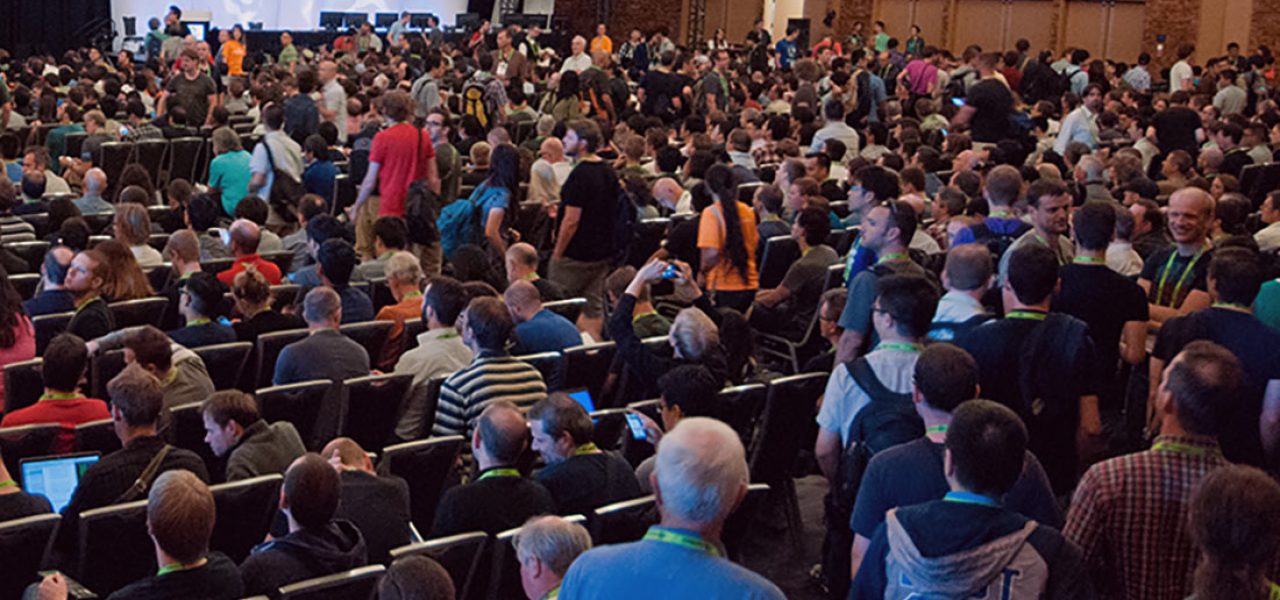
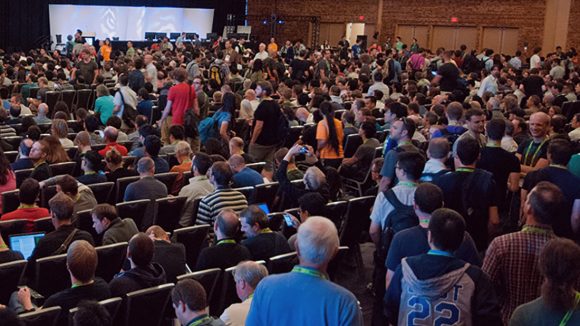
SIGGRAPH 2016: An Animation and VFX Preview
Much of the content presented at SIGGRAPH (the Special Interest Group on GRAPHics and Interactive Techniques conference) can admittedly be beyond most people. That’s because the event, which takes place next week in Anaheim from July 24-28, is a hardcore scholarly one, aimed at pulling together the latest in computer graphics research.
But don’t let that deter you. SIGGRAPH has for the past several years also been a major place to showcase the latest in Hollywood films, and the best way (sometimes, the only way) to get in-depth behind the scenes information about feature film visual effects and cg work, animated shorts and features, vr, and games. Here’s our pick of the presentations and events not to be missed at this year’s conference.
The Technical Papers
It’s what SIGGRAPH is all about. The Tech Papers represent the peer-reviewed research into computer graphics and interactive techniques being presented at the conference. Interestingly, it may not be for a few years until ideas presented here actually find their way into software products or get used on feature films. So look closely at the researchers or companies behind the presentations—what you see at SIGGRAPH will very often find its way to the big screen in time. Also, getting your head around these presentations can be tough, so one of the most fun things to do at SIGGRAPH is the Technical Papers Fast Forward, a preview of the papers to come. Presenters have less than a minute to try and entice the crowd to see their paper being discussed, and some of the ways they ‘sell’ their wares can be very amusing.
With so many papers being presented, it’s hard to identify just one highlight. However, one paper did catch our eye. It’s entitled ‘Stylit: Illumination-Guided Example-Based Stylization of 3D Renderings’ and at first seems to be a way to paint stylized 2D drawings and have them automatically populate a 3D model in real-time. But look deeper and there may well be animation implications with the research behind this toolset (the paper is co-authored by Adobe Research). Stay tuned to Cartoon Brew soon for more on Stylit and its potential application to animation.
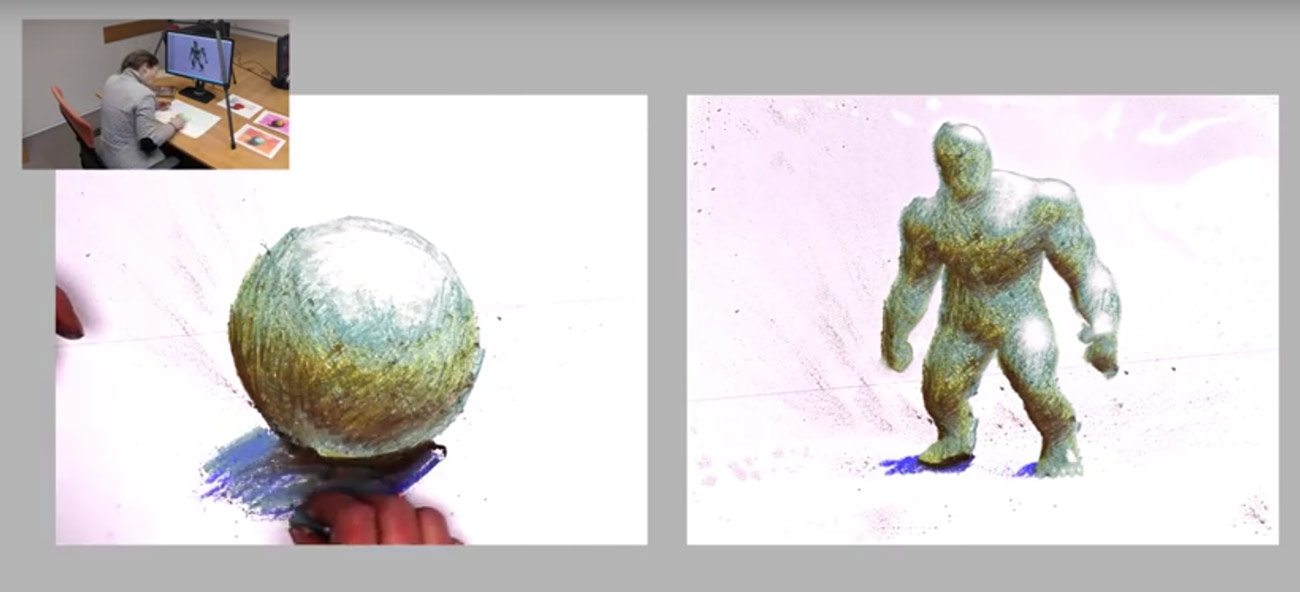
A preview of Laika’s Kubo and the Two String
Most of what you’ll see at SIGGRAPH relates to projects already released, but occasionally the conference offers a behind-the-scenes sneak peek at upcoming films. Laika’s visual effects session July 25th on the film Kubo and the Two Strings, which isn’t out until August 19th, is one such preview and part of the Production Sessions track.
The team from the stop-motion studio, which also seamlessly incorporates CG work into their films, will be presenting on how they made the Giant Skeleton, a huge puppet (one of the largest stop-motion puppets ever created) that also receives some visual effects and digital treatment. Again, stay tuned to Cartoon Brew for detailed coverage of the film.
Hidden Gems: The SIGGRAPH Talks
Animation and visual effects studios are prolific innovators. With each new release there are often new tools developed and new techniques followed. At SIGGRAPH, the Talks sessions are the place to go to find out bite-sized information about these things (the presentations are still in-depth technical pieces, but are not peer-reviewed technical papers). R&D and effects teams will be presenting about films like Finding Dory, Warcraft, TMNT 2, The Jungle Book, Zootopia, Piper, Ice Age: Collision Course, Deadpool, and so many more projects. The beauty of the Talks sessions is that you’ll find out things here that simply don’t get discussed in the popular press or even trade publications.
For example, Industrial Light & Magic will be showcasing a new tool they developed called LightCraft that was used on Jurassic World, The Force Awakens, and Warcraft (clip above) that “semi-automatically extracts 3D light position, size, and light composition from on-set photography.” Another talk by DreamWorks Animation goes into detail on its lip-sync reanimation process and pipeline. There’s even something just on the ice cream effects in Zootopia by Walt Disney Animation Studios.
The new age of rendering
Regular attendees at SIGGRAPH will already know that rendering has formed a huge part of the conference over the years, from the earliest advancements to Pixar’s RenderMan developments and the move to ray tracing and physically-based rendering. There are also some major moves being made in how studios are building renderers for themselves (such as Weta Digital’s Manuka, Walt Disney Animation Studio’s Hyperion, and Animal Logic’s Glimpse). But how are renderers actually being used in production and what’s next?
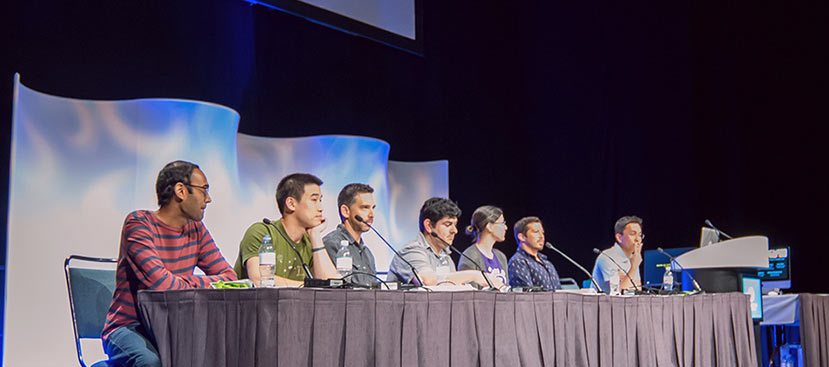
The answers (hopefully) might come in one of SIGGRAPH’s panel presentations, ‘What Makes a Production Renderer in 2016.’ A slew of industry experts from Disney, Blue Sky Studios, Pixar, DreamWorks Animation, NVIDIA, and Solid Angle (now part of Autodesk) are on the panel to discuss these issues. What should make this panel interesting, too, is that no single company is behind the session, which means it’s more likely to include some honest assessments about what’s coming in rendering and how to stay abreast of the latest changes.
Real-time is where it’s at
The hot topic at SIGGRAPH over the past few years has been real-time, that is, real-time rendering for games, vr, augmented reality, film production, and almost any form of entertainment. Some of the newest developments are presented at ‘Real-time Live!,’ a series of sessions that focus on interactivity. That means real demos on stage, too.
Among the presenters here will be ILM’s ILMxLAB which will be showcasing its augmented reality experience; Epic Games which worked with Ninja Theory, Cubic Motion, and 3Lateral on a live performance capture game engine piece; Naughty Dog and its character shading for the game Uncharted 4; and Unity which will screen the company’s real-time-rendered short film Adam (watch below) that was created with the Unity game engine.
The Computer Animation Festival has been re-vamped
It just might be possible to attend SIGGRAPH and only see the Computer Animation Festival (CAF) screenings if you wanted to. They take place at various times throughout SIGGRAPH, so take time to catch some of the sessions—only this year that’s going to be a little harder because some whole new screenings will now be part of the CAF. These include ‘Break it Down,’ a series of before-and-after reels from the big studios on their films and shows, ‘The Arcade’ which will showcase games and cinematics including concept art, ‘Demoscene’ which has some stunning computer art, and ‘Winners’ Circle’ which is a collection of previous award winners.
Speaking of winners, the CAF has already announced the best in show, jury’s choice, and best student project. Best in show went to Borrowed Time, directed by Andrew Coats and Lou Hamou-Lhadj. Again, keep looking at Cartoon Brew for an exclusive interview about the cg animated short made by Pixar artists on their own time.
Live in the VR Village
Right now it does feel like those working in computer graphics, visual effects, and animation are primed for vr. Indeed, vr has for many, many years been an institution at SIGGRAPH, but relegated to obscurity until the mainstream explosion in vr’s popularity only a few years ago. At the conference there will be a week of vr demo opportunities from a range of research projects, companies, and games studios.
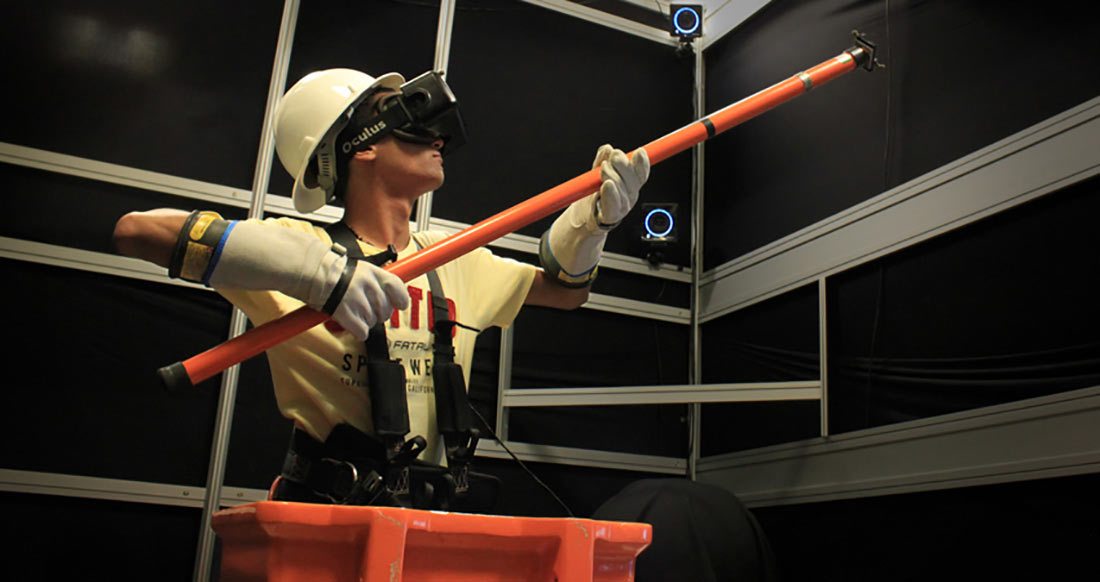
There’s also a new event—the VR Storylab—that SIGGRAPH says “blends narrative-driven, 360-degree, vr content in a physical lab environment, a diverse assortment of art, entertainment, academic, scientific, and experiential vr where attendees explore the future of immersive adventures.” Google, Production I.G, Inc., Oculus Story Studio, and NASA’s JPL are among the presenters here.
Get in early with DigiPro
One of the best kept secrets about SIGGRAPH is the existence of co-located events. The best of these events is the Digital Production Symposium (DigiPro), held the day before SIGGRAPH starts. Why? Because it’s run by a group of insiders in the digital production industry. Among the presenters are representatives of ILM, Weta Digital, Double Negative, DreamWorks Animation, Image Engine, MPC, Imageworks, and Framestore.
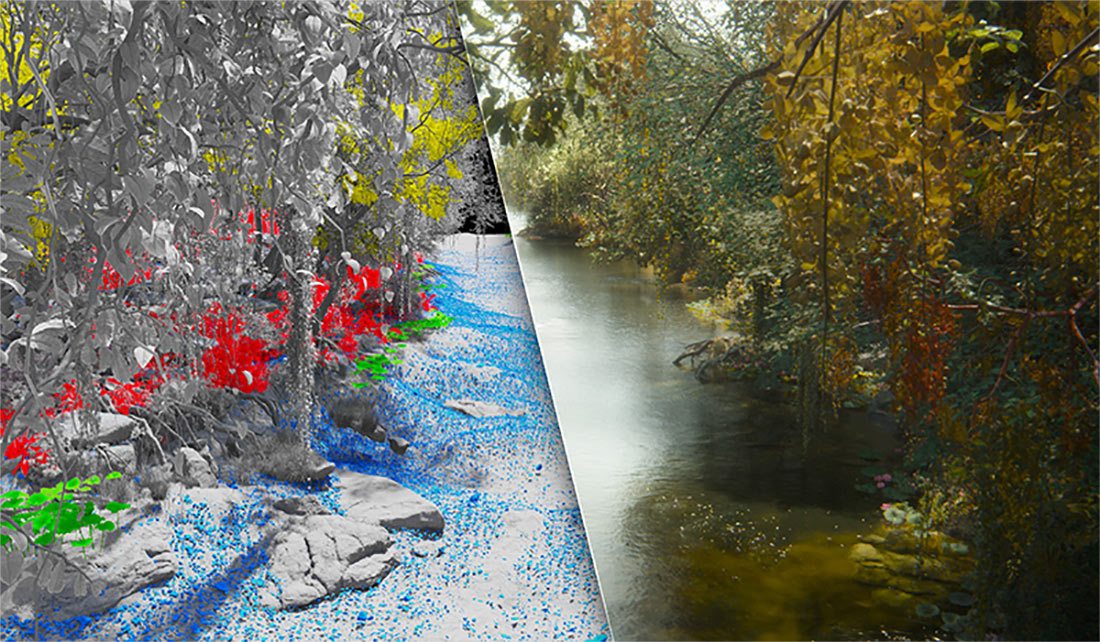
A couple of highlights look to be MPC’s discussion of their art-directed procedural scattering techniques used for The Jungle Book environments and the creation of an actor-specific facial rig for performance capture by Weta Digital. If you’re already in Anaheim the day before SIGGRAPH and can score a ticket to DigiPro (it’s in addition to any SIGGRAPH pass), this is a must.

